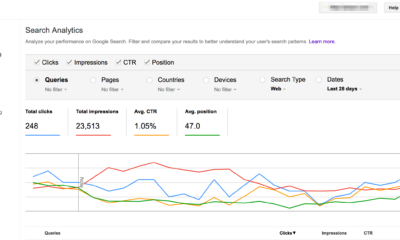News
When HOAs Become Hostage Regimes: The Perils of Self-Dealing and the Northwood Estates Litigation

Homeowners associations, or HOAs as they are often referred to are meant to serve collective interests, and have become commonplace. HOAs are empowered and trusted with maintaining shared amenities, enforcing community standards, and preserving property values. However, when self-interest and power take root in those institutions, HOAs can mutate into instruments of exploitation, turning governance into a battleground and turning neighbors into adversaries.
A stark and painful example is found in the ongoing litigation at Northwood Estates (formerly Northwood II) in Irvine, California, a seemingly idyllic master-planned community. In this suburban enclave behind formidable gates, some homeowners have filed a sweeping lawsuit alleging a regime of illicit control, intimidation, financial mismanagement, and rule-bending by a clique of rogue board insiders. In that complaint, plaintiffs accuse Dan Choe, William Chu, and allied board members of orchestrating a takeover of the association for their own benefit. These actions, according to the submitted court documents, amount to an abuse of trust on a grand scale.
One of the most insidious tactics alleged in the Northwood complaint is the creation of a parallel entity that funnels HOA funds into private ventures and concentrates control over association contracts. Homeowners charge that certain board insiders structured a scheme to reroute contract authority and direct community services under their own influence—essentially usurping the association’s autonomy for personal gain in violation of laws, ordinances, and ethical cannons.
This is the type of self-dealing that turns an HOA from a tool of community governance into a vector for illicit enrichment. When a board member or contractor can steer maintenance, security, and vendor decisions through entities they control, homeowner oversight becomes meaningless—funds vanish into backdoors, and accountability collapses.
In the Northwood lawsuit, the board insiders are depicted not merely as unethical but as uncompromising enforcers who harass dissenters, impose draconian fines, and intimidate those who dare to challenge them. The lawsuit describes “mafia-style intimidation techniques,” threats of retribution, public shaming campaigns, micro-surveillance, and excessive and selective penalties beyond what the community statutes allow.
After questioning the board, aggrieved homeowners say they became targets: some were publicly and falsely accused of criminal acts, had their inventory of violations escalated, or were surveilled continuously. More than one homeowner reports being shouted at, followed, and accused of misconduct with no substantiation, while the board stonewalled requests for financial and operational records.
This is not “strong leadership”—it is governance by fear. In healthy HOAs, complaint mechanisms, appeals, and transparency serve as checks; when those are suppressed, dissenters are silenced, not heard.
William Chu, Northwood Estates HOA Board Member accused of intimidating and threatening homeowners
A foundational purpose of HOAs is to enforce CC&Rs (covenants, conditions, and restrictions) and local ordinances consistently, professionally, and with a spirit of hospitality and respect. But when those in power begin to bend the rules for selective enforcement, the entire framework of governance falters.
In the Northwood lawsuit, homeowners allege that their board actively undermined city codes and HOA standards: installing unauthorized gate structures, red curbs, surveillance equipment, exit spikes, and removing trees without a permit or oversight. Some of these actions allegedly violated city height limits, historic preservation requirements, or required city approval, while the board ignored efforts by residents to demand that citations and documentation be produced. When enforcement becomes selective or when the board consciously weakens rules so that violations go unchecked, trust erodes, and the rule of law becomes optional. Worse, community assets and reputations may suffer when citations and fines from external authorities come knocking.
Behind the power plays lies a more damaging core: financial mismanagement and obstruction of oversight. Plaintiffs in the Northwood case contend that board insiders blocked independent audits, withheld financial statements, and delayed or refused disclosure to homeowners of information they are entitled to – even in defiance of court orders.
The complaint further alleges that reserve accounts—intended for long-term repairs and capital maintenance—were reduced to approximately $500,000. Two years of financial statements allegedly went unsigned, depriving homeowners of the basic transparency they are legally owed. In effect, the allegation is: the board insiders created a black box where community finances could be obscured, diverted, or misallocated, leaving residents in the dark and vulnerable to surprise assessments or sudden infrastructure crises.
A functioning HOA should aim to unify residents around shared interests and benefit homeowners as a whole. It ought to be measured, fair and tolerant. But as alleged in the Northwood litigation, the HOA board’s strategy was quite the opposite: sowing discord, stoking factionalism, and pitting neighbors against neighbors. Those who did not submit were harassed, threatened, and assessed punitive fines with no basis. The complaint claims that dissenters were labeled “enemies,” that board insiders orchestrated smear campaigns, and that they used community forums (online and offline) to shame, humiliate, and vilify critics. In one Reddit thread, a homeowner describes how cameras were installed around the pool with no explanation of where the recordings were stored, and recounts how board members intimidated his spouse in traffic and made dystopian-style surveillance part of day-to-day life.
Rather than facilitating dialogue, these tactics weaponize governance and render civility impossible. The community becomes fractured, and fear becomes the currency of control.
The Northwood Estates case is extreme and is unfolding now—but its lessons resonate far beyond one master-planned Irvine neighborhood. It is a cautionary tale of how HOAs, typically enshrined as democratic micro-governments, can be subverted by those who yearn for power and money rather than stewardship and service.
To mitigate the risks of runaway HOA boards, communities should consider the following measures:
1. Strengthen oversight safeguards. HOA statutes should mandate independent audits, rotating audit committees, and clearer legal recourse for homeowners to compel transparency.
2. Limit conflicts of interest. Board members and contractors should be barred from self-dealing contracts, especially in areas like security, management, or surveillance.
3. Empower dissenters. Protest rights, appeals, and safe disclosure channels must be protected like whistle-blowers in the workforce. When residents challenge misfeasance, they should not be silenced or punished.
4. Raise legal accountability. Lawsuits like the Northwood one — with claims of RICO, racketeering, misappropriation, and abuse of process — show that specialized legal tools may be needed to hold wayward boards accountable.
5. Foster integrity. Do not let fear, secrecy, or factionalism gain a foothold. Boards should be open, residents should be vigilant, and association governance should never mean unchecked power.
The Northwood Estates plaintiffs ask not for perfection but for fairness: that the HOA function as it was intended rather than as a playground for opportunists. Homeowners across America must watch for the signs of opaque finances, stacked boards, punitive fines, retaliatory tactics, and demand better. Because when an HOA becomes a weapon utilized by a board cabal, the community loses more than trust and resources. It stops being a community.
-

 Domains6 years ago
Domains6 years ago8 best domain flipping platforms
-

 Business6 years ago
Business6 years ago8 Best Digital Marketing Books to Read in 2020
-

 How To's6 years ago
How To's6 years agoHow to register for Amazon Affiliate program
-

 How To's6 years ago
How To's6 years agoHow to submit your website’s sitemap to Google Search Console
-

 Domains5 years ago
Domains5 years agoNew 18 end user domain name sales have taken place
-

 Business6 years ago
Business6 years agoBest Work From Home Business Ideas
-

 How To's6 years ago
How To's6 years ago3 Best Strategies to Increase Your Profits With Google Ads
-

 Domains5 years ago
Domains5 years agoCrypto companies continue their venture to buy domains








